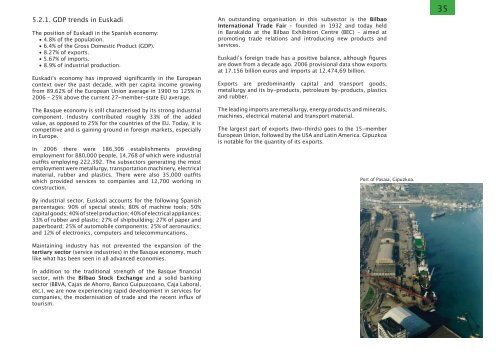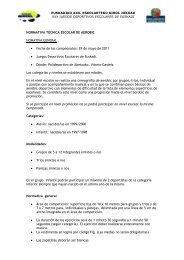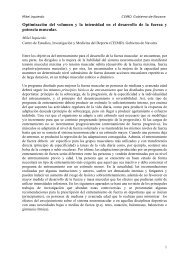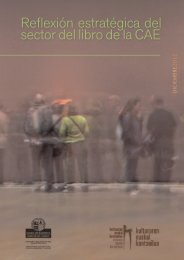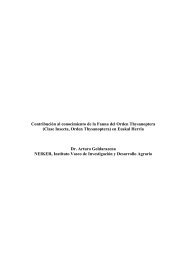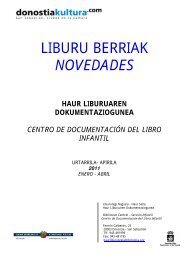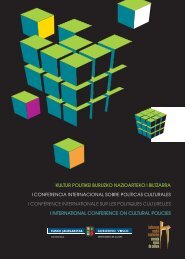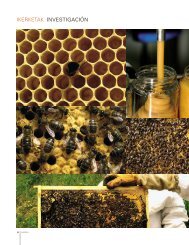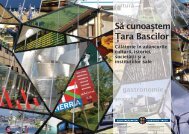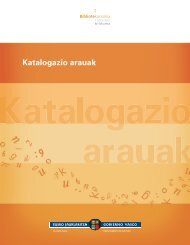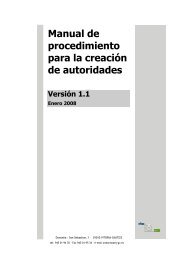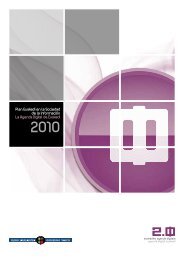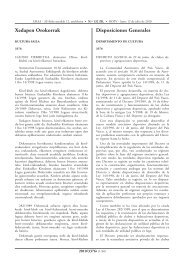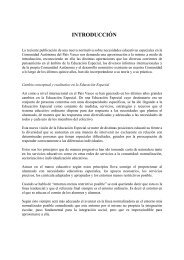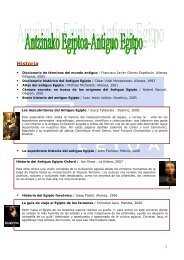The Basque Country (pdf, 4,3Mb) - Kultura Saila - Euskadi.net
The Basque Country (pdf, 4,3Mb) - Kultura Saila - Euskadi.net
The Basque Country (pdf, 4,3Mb) - Kultura Saila - Euskadi.net
Create successful ePaper yourself
Turn your PDF publications into a flip-book with our unique Google optimized e-Paper software.
5.2.1. GDP trends in <strong>Euskadi</strong><br />
<strong>The</strong> position of <strong>Euskadi</strong> in the Spanish economy:<br />
• 4.8% of the population.<br />
• 6.4% of the Gross Domestic Product (GDP).<br />
• 8.27% of exports.<br />
• 5.67% of imports.<br />
• 8.9% of industrial production.<br />
<strong>Euskadi</strong>ʼs economy has improved significantly in the European<br />
context over the past decade, with per capita income growing<br />
from 89.62% of the European Union average in 1990 to 125% in<br />
2006 – 25% above the current 27-member-state EU average.<br />
<strong>The</strong> <strong>Basque</strong> economy is still characterised by its strong industrial<br />
component. Industry contributed roughly 33% of the added<br />
value, as opposed to 25% for the countries of the EU. Today, it is<br />
competitive and is gaining ground in foreign markets, especially<br />
in Europe.<br />
In 2006 there were 186,306 establishments providing<br />
employment for 880,000 people, 14,768 of which were industrial<br />
outfits employing 222,392. <strong>The</strong> subsectors generating the most<br />
employment were metallurgy, transportation machinery, electrical<br />
material, rubber and plastics. <strong>The</strong>re were also 35,000 outfits<br />
which provided services to companies and 12,700 working in<br />
construction.<br />
By industrial sector, <strong>Euskadi</strong> accounts for the following Spanish<br />
percentages: 90% of special steels; 80% of machine tools; 50%<br />
capital goods; 40% of steel production; 40% of electrical appliances;<br />
33% of rubber and plastic; 27% of shipbuilding; 27% of paper and<br />
paperboard; 25% of automobile components; 25% of aeronautics;<br />
and 12% of electronics, computers and telecommuncations.<br />
Maintaining industry has not prevented the expansion of the<br />
tertiary sector (service industries) in the <strong>Basque</strong> economy, much<br />
like what has been seen in all advanced economies.<br />
In addition to the traditional strength of the <strong>Basque</strong> financial<br />
sector, with the Bilbao Stock Exchange and a solid banking<br />
sector (BBVA, Cajas de Ahorro, Banco Guipuzcoano, Caja Laboral,<br />
etc.), we are now experiencing rapid development in services for<br />
companies, the modernisation of trade and the recent influx of<br />
tourism.<br />
An outstanding organisation in this subsector is the Bilbao<br />
International Trade Fair – founded in 1932 and today held<br />
in Barakaldo at the Bilbao Exhibition Centre (BEC) – aimed at<br />
promoting trade relations and introducing new products and<br />
services.<br />
<strong>Euskadi</strong>ʼs foreign trade has a positive balance, although figures<br />
are down from a decade ago. 2006 provisional data show exports<br />
at 17.156 billion euros and imports at 12.474,69 billion.<br />
Exports are predominantly capital and transport goods,<br />
metallurgy and its by-products, petroleum by-products, plastics<br />
and rubber.<br />
<strong>The</strong> leading imports are metallurgy, energy products and minerals,<br />
machines, electrical material and transport material.<br />
<strong>The</strong> largest part of exports (two-thirds) goes to the 15-member<br />
European Union, followed by the USA and Latin America. Gipuzkoa<br />
is notable for the quantity of its exports.<br />
Port of Pasaia, Gipuzkoa.<br />
35


